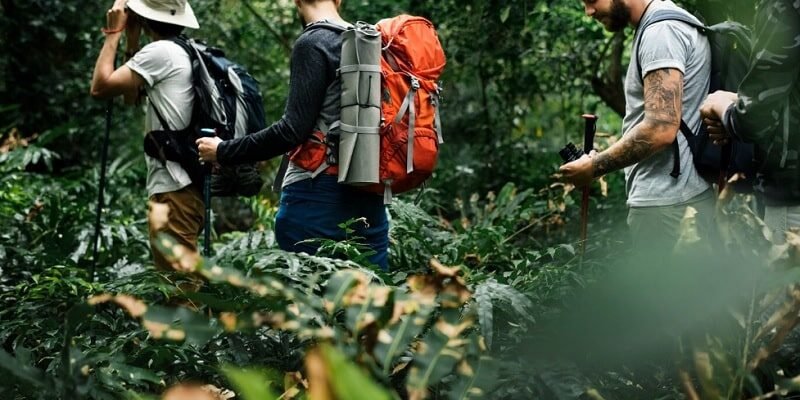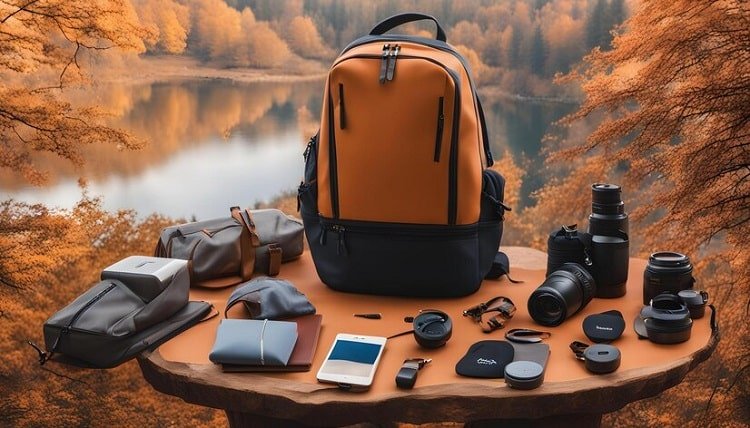
Adventure travel involves exploration and outdoor activities that provide exhilarating experiences in nature. It’s about embracing the thrill of the unknown in remote wilderness or rugged landscapes. From hiking volcanic peaks to whitewater rafting jungle rivers, adventure awaits those seeking an adrenaline rush combined with awe-inspiring beauty.
Beyond exciting physical challenges, adventure travel enables us to:
- Marvel at natural wonders and understand our planet.
- Gain new perspectives and rejuvenate through immersion in nature.
- Form bonds with fellow travelers who share a daring spirit.
- Support conservation of parks and protected lands.
This guide spotlights the top outdoor activities for adventure travelers thirsty for their next daring escape. It provides tips to stay safe while pushing your limits in incredible destinations.
Hiking, camping, rock climbing, and other outdoor activities in different destinations
Here are some of the most popular adventure travel activities along with prime locations:
Hiking and Trekking
Peru, Patagonia, Canadian Rockies, New Zealand, Mt. Kilimanjaro
Rock and Ice Climbing
Yosemite National Park, Colorado, Mount Everest Base Camp
Surfing and Kitesurfing
Hawaii, Mexico, Indonesia, Costa Rica, Morocco
Mountain Biking
Moab, Utah, British Columbia, Chile, Alps
Paddleboarding and Kayaking
Norway Fjords, Costa Rica, Sardinia, Antarctica
Scuba Diving and Snorkeling
Great Barrier Reef, Belize, Maldives, Galapagos Islands
Skiing and Snowboarding
Swiss Alps, Alaska, Patagonia, Japan
Tips for staying safe and prepared while engaging in outdoor activities
Don’t let mishaps ruin your adventures. Implement these safety measures:
Research
- Learn about the difficulty level of trails and only take on challenges suitable for your fitness and skill level.
- Read park regulations about permits, allowed activities, wildlife precautions, trail closures, etc.
- Study weather patterns like monsoon season or winter snowfall that influence ideal timing.
- Confirm specific gear like crampons or wet suits needed for each activity.
Guides and Tours
- Hire reputable guide services vetted by tourism boards and travel sites. Seek licensed, certified, and insured professionals.
- For high-risk activities like diving, climbing, or whitewater rafting, always use guides to ensure safety.
- Ask about group size and guest-to-guide ratio. Smaller groups allow closer supervision.
- Look for sustainable tour operators dedicated to protecting the environment.
Preparedness
- Pack ample food, water, layers, sunscreen, first aid supplies, maps, etc. Assume you may need more than anticipated.
- Allow extra time reaching trailheads identified as remote or rugged.
- Familiarize yourself with potential hazards like altitude sickness, undertows, or rock slides based on the activity and location.
- Research the flora, fauna, and terrain to avoid hazards like poison oak, riptides, avalanche-prone slopes, etc.
- Carry a satellite phone, personal locator beacon, flare, or other device for emergencies when going solo into extreme backcountry.
Sustainable and responsible adventure travel options
We must protect fragile natural areas we explore. Prioritize operators upholding these sustainable practices:
- Use designated trails, avoid restricted areas, and leave no trace by packing out all trash.
- Contribute to reforestation efforts by global nonprofits like OneTreePlanted and Eden Reforestation.
- Join eco-certified lodges taking steps like implementing renewable energy and recycling.
- Avoid activities like elephant rides that exploit animals. Instead opt for responsible wildlife viewing.
- Purchase carbon offsets through platforms like Cool Effect to counteract emissions from flights.
- Donate to local conservation groups protecting parks and natural areas.
Supporting local communities and protecting the environment through adventure travel
You can ensure your thrilling journey also benefits destinations:
- Spend money at locally-owned hotels, restaurants, and tour operators.
- Purchase handicrafts and art directly from local artists and craftsmen.
- Consider volunteer opportunities like homestays, school construction, and trail maintenance to give back.
- Hire multi-day tour guides who provide cultural education and insight beyond the activity.
- Tip service providers, guides, and lodge staff generously.
- Respect sacred indigenous sites and private property. Obtain permission before photographing local people.
- Learn about and follow all rules regarding responsible interaction with wildlife. Never feed, handle, or otherwise disturb animals.
Conclusion
Booking an active adventure trip provides incomparable opportunities to challenge yourself physically and mentally while generating life-long memories. As enthusiasm for adventure travel grows, we all must be stewards protecting fragile environments and uplifting local economies. This ensures our spirit for exploration and wonder at nature’s splendor continues for generations.
Here are three key takeaways on adventuring responsibly:
- Research activity difficulty, ideal timing, needed permits, weather hazards, and gear requirements.
- Only use licensed, certified guides and book through sustainable tour operators.
- Follow Leave No Trace principles, travel emissions-free when possible, and donate to local conservation causes.













